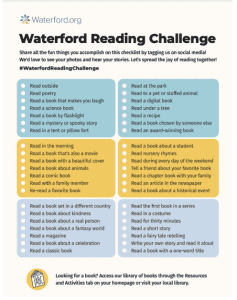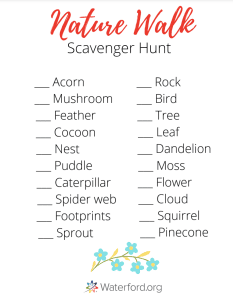For many families, summertime brings a mix of excitement and anxiety. While the promise of family time and outdoor fun is enticing, the sudden lack of structure can be overwhelming. As a result, parents and caregivers juggle multiple responsibilities: keeping kids entertained, planning activities, and tackling work and other daily responsibilities, too. Plus, there’s an added pressure to prevent what educators call the “summer slide” — the loss of academic skills that can occur during the break.
It can be a lot to handle! You may want your children to enjoy summer, but you also worry about them falling behind academically. The good news is that no family is alone in this struggle, and there are ways to make learning a natural, enjoyable part of summer routines.
This article offers 9 easy, hands-on learning ideas designed for PreK and elementary-aged children. These activities aim to keep young minds engaged without adding stress to your already full plate. Whether you have a few minutes or a few hours, you’ll find practical ways to incorporate learning into your summer days, helping your child retain knowledge while still having plenty of time for summer fun.
1. Find a Summer Reading Program
Children who read during the summer are more likely to continue building their learning skills. One fun way to encourage your child is with a summer reading challenge. Waterford’s Summer Reading Challenge (which you can download here in English and Spanish) inspires learning with a variety of prompts, including:
- Read a book that makes you laugh
- Read a book to a pet or stuffed animal
- Write your own story and read it aloud
Another resource is your local library. Librarians have recommendations for readers for all ages and usually have fun activities, including reading challenges, planned for children during the summer.
Like many skills, daily practice is key. Based on recent research, Waterford recommends that children read 15 minutes a day to help strengthen key literacy skills. Whether you and your child snuggle up to read together, or if your older child practices independent reading, a daily reading habit will help your child stay school-ready for the fall and form literacy practices that can last a lifetime. You can also start a summer reading log to keep track of your child’s favorite books to revisit later.
2. Plan a Nature Scavenger Hunt or Other Outdoor Activities
Whether you’re observing backyard birds, finding bugs, or going on a nature walk, there are all kinds of ways to learn about science while getting active. If you can get to a local trail, or even a state or national park, that can make for a great day trip.
If not, there are plenty of fun nature activities you can do in your own neighborhood. Use this outdoor scavenger hunt to get started, or make your own list with local sights. As your child completes the worksheet, they can practice identifying the written names of the items they spot—reinforcing reading and STEM skills together.
3. Use Online Activities to Make Learning Fun
Waterford Upstart is a home learning program that gets children ready for school at no cost to families. It’s designed for PreK-aged learners and uses games, songs, and activities to teach children foundational reading skills. Waterford Mentor is a resource library and family engagement app for families of elementary-aged learners.
You can access thousands of early learning resources that get children ready for school using the Science of Reading by creating a Waterford account. Browse Waterford’s Resources & Activities to find hundreds of engaging activities to build foundational skills in reading, math, and science for your child, available in English and Spanish.
You can sign up for a free account if you don’t already have one:
- PreK Families: Waterford Upstart
- K-2 Families: Waterford Mentor
Once you’re signed up, click on the Resources & Activities tab to find fun and educational activities, like picture books, downloadable activities, coloring pages, and more:
- José Three (José tres) (Pre-Reading)
- Dev and His New Pet (Dev y su nueva mascota) (Basic Reading)
- Violeta (Violeta) (Fluent Reading)
- Coloring Page: Frisbee Fun
- Name Writing Practice (Escritura de nombre)
Plus, visit Waterford’s YouTube channel for interactive activities, learning tips, and sing-alongs to practice key skills with your young learner!
4. Go on a Family Field Trip
Take advantage of local museums, community centers and events, and parks! Your child will engage in hands-on learning as they explore, giving them an opportunity for experiential learning (or “learning by doing”).
To find free or low-cost summer activities in your neighborhood, search “family events near me” or “summer activities near me.” You can also get in touch with educators, librarians, and local community centers like the YMCA or Boys & Girls Club. They’ll be able to direct you to local resources.
5. Start a Summer Journal
For children, the benefits of writing are numerous and go beyond just literacy development. Creative writing can encourage kids to expand their imagination, and journaling helps them reflect and think critically.
Here are a few prompts we recommend sharing with your children as they journal:
- If you could have any pet in the world (even a magical creature), what would you want to have? What name would you give it?
- Look out of your window. What do you see?
- Think about your favorite color. What does it remind you of?
Visit our Creative Writing Prompts and Journaling Prompts for more engaging writing inspiration.
Children who have not yet learned to write sentences can draw pictures instead, or you can help them record their thoughts. After they have finished their journal entry, discuss their drawing and its meaning together to practice communication skills.
6. Practice Math and Reading Skills in Your Daily Routine
Every day is a new opportunity for children to practice what they learned last year in school. No change to your family routine is required! Instead, find ways to practice math and reading skills each day at home or on the go.
If you see a sign at the grocery store, for example, you could ask your child what words or letters they recognize and sound them out together. Practicing math can be as simple as counting out groups of things while taking a walk, like flowers or clouds.
These Waterford Learning Together calendars can give you fun home learning ideas throughout the summer months:
June
July
August
 7. Learn New Vocabulary Words Together
7. Learn New Vocabulary Words Together
Learning new words can help children to practice and grow their vocabulary. Place a new word on your refrigerator and review it for a week. See how often you and your child can use the word in a sentence as you go about your day.
You can also practice spelling a new sight word every week. Although your child may already know what the word means, learning to spell these commonly used words will build their literacy skills. Check out this list of common sight words for inspiration.
Interested in more ways to build vocabulary at home? Waterford Upstart is a proven effective early literacy program that helps children get prepared for school. Follow the link here to view which programs are available for your state and sign up.
8. Play Games, Teach Math Skills
Board games make for perfect summer math activities on afternoons as well as on rainy days inside. Some classic board games, like Monopoly or Chutes and Ladders, help children learn number facts as they move tokens and count out their spaces on the board.
Want a challenging game you can play with your child? Chess is a great classic game that children and caregivers can learn to play together. Find a guide to chess for young learners here. Chess can have a positive impact on critical thinking skills, which are important for STEM subjects.
9. Try Summer Science Experiments
Science experiments can help children learn about the world around us. Many of these experiments can be done with household items, making them easy to set up. Follow the link here for summer STEM experiments perfect for early elementary learners, like:
- Cloud in a Jar
- DIY Bird Feeder
- Geocaching
By incorporating these fun and educational activities into your summer plans, you can help your child stay school-ready for the fall—and have a great time together as a family. Sign up today for Waterford Upstart to support your child’s school readiness journey with fun songs, cute characters, and interactive learning activities.
Andy Minshew is an educational content writer for Waterford.org. He has developed articles, ebooks, help instructions, and other Waterford resources for educators and families since 2018. He is also an Audiofile Magazine reviewer and a librarian advisor for EBSCO NoveList. He loves visiting art museums, participating as a member of the Tolkien Society, and hiking with his family.




 7. Learn New Vocabulary Words Together
7. Learn New Vocabulary Words Together